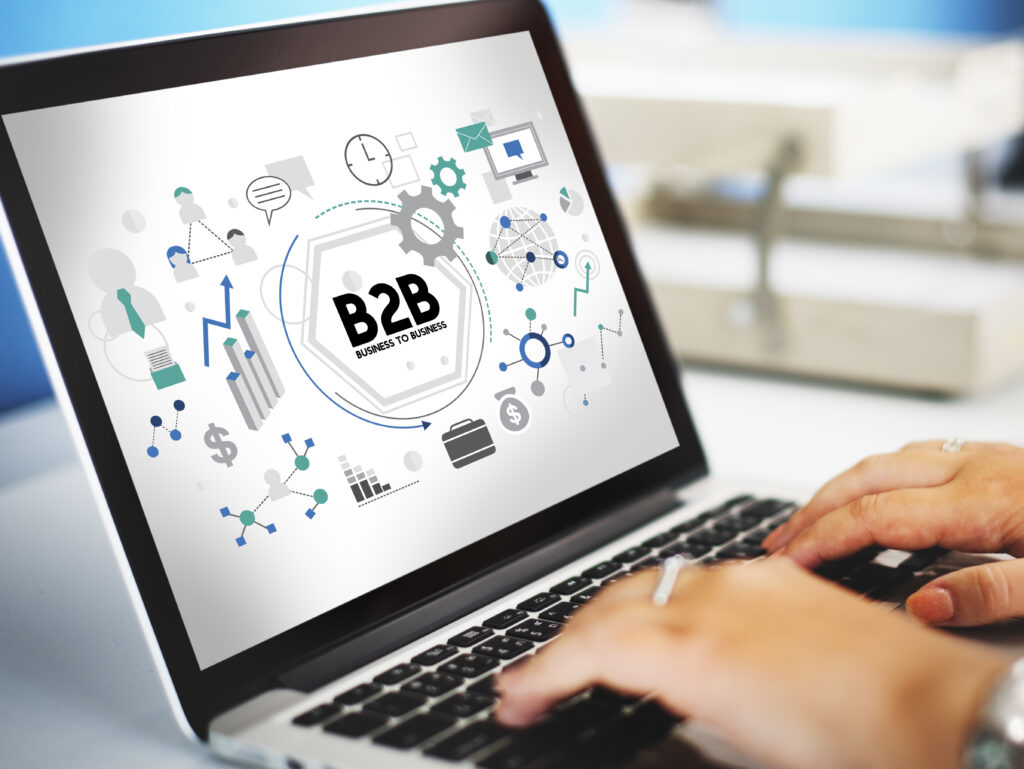In the dynamic landscape of modern commerce, the term “B2B marketplace” has emerged as a game-changer.
These online platforms, designed exclusively for business-to-business transactions, have revolutionized the way industries connect, collaborate, and conduct trade.
Imagine a digital hub where suppliers, wholesalers, and buyers converge, streamlining processes, and unlocking unprecedented opportunities.
In just 50 words, we’ll delve into the essence of B2B marketplaces, exploring their pivotal role in reshaping global commerce.
Here what is express marketplace?
What is b2b marketplace? (The meaning of B2B)
Well a B2B (business-to-business) marketplace is an online platform where businesses can buy and sell products or services to other businesses.
It serves as a digital intermediary, connecting suppliers with potential customers.
These marketplaces facilitate efficient transactions, streamline procurement processes, and often offer features like product listings, pricing negotiation, and secure payment systems.

B2B marketplaces enhance accessibility to a wide range of suppliers and buyers, fostering competition and helping companies find the best deals.
They have become increasingly important in modern commerce, enabling businesses to expand their reach, reduce costs, and optimize their supply chains through digital commerce.
What is B2B net marketplace example?
A prominent example of a B2B net marketplace is Ariba Network by SAP. Ariba Network is a leading global B2B platform that connects buyers and suppliers across various industries.
It enables businesses to streamline procurement processes, manage supplier relationships, and conduct electronic transactions efficiently.
Companies can use Ariba Network to source products and services, negotiate contracts, and track orders and invoices electronically.
It also provides features like spend analytics and supplier performance evaluation.
Ariba Network serves as a comprehensive B2B ecosystem, illustrating the power and efficiency of net marketplaces in modern business-to-business commerce.
Here is ASOS marketplace legit?
What is B2B business with example?
Now let’s see what is a B2Be commerce marketplace.
What is a B2B eCommerce Marketplace?
Well a B2B (business-to-business) eCommerce marketplace is an online platform that facilitates the buying and selling of products or services between businesses.
It connects multiple suppliers with potential buyers, offering a digital space for companies to discover, negotiate, and complete transactions.
B2B eCommerce marketplaces streamline procurement processes, provide access to a wide range of products and suppliers, and often offer tools for order management, payment processing, and inventory tracking.
These platforms enhance efficiency, foster competition, and enable businesses to expand their reach, making them a vital component of modern B2B commerce.
Now let’s see some comparisons on B2C, C2B, and C2C
B2B compared to B2C, C2B, and C2C
Well, B2B (Business-to-Business), B2C (Business-to-Consumer), C2B (Consumer-to-Business), and C2C (Consumer-to-Consumer) are different models of e-commerce, each catering to distinct types of transactions:
1. B2B (Business-to-Business):
In B2B e-commerce, businesses sell products or services directly to other businesses. This model focuses on bulk purchases, wholesale pricing, and building long-term relationships between companies.
Here can i get scammed on the Facebook marketplace?
2. B2C (Business-to-Consumer):
B2C e-commerce involves businesses selling products or services directly to individual consumers.

It’s the most common online shopping model, characterized by a wide range of products, personalized shopping experiences, and marketing aimed at individual buyers.
3. C2B (Consumer-to-Business):
C2B e-commerce occurs when individual consumers offer products or services to businesses.
Examples include freelancers offering services to companies or consumers selling user-generated content or reviews to businesses.
4. C2C (Consumer-to-Consumer):
In C2C e-commerce, individual consumers buy and sell products or services to/from other consumers through online platforms.
Popular examples include online marketplaces like eBay and classified ad websites where people can trade used goods.
Each model serves a specific market segment and has unique characteristics, transaction dynamics, and strategies associated with it.
Now let’s see what the well-known online B2B marketplaces
The most well-known online B2B marketplaces
Though, several well-known online B2B marketplaces have gained prominence in the world of business-to-business commerce due to their vast reach and diverse offerings. Here are some of the most notable ones:
Alibaba:
Alibaba.com is one of the largest B2B platforms globally, connecting businesses with suppliers and manufacturers. It covers a wide range of industries and products, facilitating international trade.
Amazon Business:
Amazon Business offers a comprehensive B2B marketplace with millions of products. It caters to businesses of all sizes, providing procurement solutions, analytics, and fast shipping options.
Thomasnet:
Thomasnet.com specializes in industrial sourcing, connecting buyers with suppliers in manufacturing and engineering sectors. It offers a vast database of product and supplier information.
Global Sources:
This platform focuses on electronics, including consumer electronics, electronic components, and machinery. It connects businesses with suppliers primarily from Asia.
DHgate:
DHgate.com is a Chinese e-commerce platform known for its wholesale and bulk purchasing options across various product categories.
TradeIndia:
TradeIndia.com is a prominent B2B platform in India, facilitating domestic and international trade across diverse industries.
These B2B marketplaces simplify the process of sourcing products, negotiating deals, and expanding global business networks, making them invaluable resources for businesses seeking to grow and streamline their operations.
Here, can you post on the marketplace without seeing friends?
Now let see the types of B2B marketplaces.
Types of B2B Marketplaces
However, B2B (business-to-business) marketplaces come in various types, each catering to specific industries, niches, or business needs.
Here are some common types of B2B marketplaces:
1. General B2B Marketplaces:
These platforms cover a wide range of industries and products, serving as a one-stop-shop for various businesses to source goods and services. Examples include Alibaba, Amazon Business, and Global Sources.

2. Industry-Specific Marketplaces:
These marketplaces specialize in specific industries or sectors, providing a focused platform for businesses within that niche. For instance, Thomasnet focuses on industrial and manufacturing sectors.
3. Regional B2B Marketplaces:
Some platforms are region-specific, connecting businesses within a particular geographic area or market.
TradeIndia, for example, primarily serves the Indian market.
4. Wholesale Marketplaces:
These marketplaces cater to bulk purchasing and wholesale transactions, making them ideal for businesses looking to buy or sell products in large quantities. DHgate is an example of a wholesale-focused platform.
5. Procurement and Sourcing Platforms:
These platforms offer advanced procurement solutions, including e-procurement, spend management, and supplier relationship management (SRM). They help businesses streamline their purchasing processes.
6. Government and Public Sector Marketplaces:
Some B2B marketplaces are dedicated to government procurement and public sector contracts, connecting government agencies with suppliers.
7. Marketplaces for Services:
While many B2B marketplaces focus on physical products, others specialize in connecting businesses with service providers, such as freelancers or consulting firms.
8. Emerging Technology and Innovation Hubs:
Some B2B marketplaces are dedicated to emerging technologies like IoT (Internet of Things), AI (Artificial Intelligence), or blockchain, fostering innovation within specific sectors.
These various types of B2B marketplaces cater to the diverse needs of businesses, offering specialized solutions and opportunities for growth and efficiency within their respective domains.
Here, can I sell concert tickets on the Facebook marketplace?
Now let’s see some benefits of the B2B marketplace.
Benefits for suppliers of being part of a B2B marketplace
Suppliers can reap numerous benefits by participating in a B2B marketplace:
1. Expanded Reach:
B2B marketplaces provide access to a broader customer base, including potential buyers from different regions and industries.
2. Increased Sales Opportunities:
Suppliers can showcase their products or services to a targeted audience actively seeking their offerings, leading to higher conversion rates.
3. Cost-Efficiency:
Marketing and customer acquisition costs are reduced as suppliers leverage the marketplace’s existing infrastructure for promotion.
4. Streamlined Operations:
B2B platforms often offer tools for order management, invoicing, and payment processing, simplifying administrative tasks.
5. Competitive Insights:
Suppliers gain insights into market trends, competitor offerings, and pricing strategies, aiding in strategic decision-making.
6. Credibility and Trust:
Being part of a reputable marketplace can enhance a supplier’s credibility and trustworthiness, fostering customer confidence.
7. Global Expansion:
Suppliers can explore international markets and potentially enter new geographic regions without significant upfront investments.
8. Feedback and Improvement:
Feedback from customers on the marketplace can help suppliers enhance their products or services.
Participating in a B2B marketplace can boost a supplier’s visibility, sales, and efficiency while reducing operational complexities.
Here, what are product tags on the Facebook marketplace?
How to succeed on a B2B marketplace?
Succeeding on a B2B marketplace requires a strategic approach:

- Complete and Optimize Your Profile: Create a compelling profile with detailed product or service information, high-quality visuals, and accurate contact details.
- Offer Competitive Pricing: Price competitively to attract buyers and stand out in a crowded marketplace.
- Provide Excellent Customer Service: Respond promptly to inquiries, offer support, and build strong customer relationships.
- Maintain Quality: Consistently deliver high-quality products or services to build trust and garner positive reviews.
- Optimize Listings: Use relevant keywords and descriptions to improve discoverability.
- Leverage Marketplace Tools: Utilize marketplace tools for analytics, marketing, and order management.
- Stay Competitive: Monitor competitor offerings and adjust your strategy accordingly.
- Seek Feedback: Listen to customer feedback and continuously improve your offerings and customer experience.
- Expand Your Reach: Consider international markets and explore partnerships to grow your presence.
- Adapt to Changes: Stay updated with marketplace policies and adapt to evolving trends and customer needs.
Why use a B2B marketplace?
Well, using a B2B marketplace offers several compelling advantages for businesses.
It provides access to a vast network of potential buyers and suppliers, streamlines procurement processes, and enhances operational efficiency.
B2B marketplaces facilitate cost-effective transactions, often offer competitive pricing, and provide a platform for businesses to expand their reach globally.
Additionally, they offer valuable insights into market trends and competitor activities.
By leveraging the resources and tools available on B2B marketplaces, businesses can save time and resources while tapping into new opportunities, ultimately boosting their competitiveness and growth in an increasingly digital and interconnected business landscape
Why set up a B2B marketplace?
Thus establishing a B2B marketplace can be a lucrative business endeavor. It allows you to tap into a growing e-commerce trend, offering a platform for businesses to connect, buy, and sell products or services efficiently.
B2B marketplaces can generate revenue through transaction fees, subscriptions, or advertising, providing a sustainable business model.
Moreover, they foster economic ecosystems, attract a diverse user base, and can become industry hubs, solidifying your position as a key player in the B2B landscape.
By setting up a B2B marketplace, you not only facilitate trade but also create a valuable digital marketplace that can drive profitability and innovation.
How to launch your B2B Marketplace?
Launching a B2B marketplace involves several crucial steps:
- Market Research: Identify a niche with demand, understanding your target audience’s needs.
- Business Model: Choose a revenue model (e.g., transaction fees, subscriptions) and create a pricing strategy.
- Platform Development: Build a user-friendly, scalable platform with essential features like user profiles, search, payment processing, and security.
- Supplier Onboarding: Attract suppliers by showcasing the benefits of your marketplace and simplifying onboarding.
- Buyer Acquisition: Develop a marketing strategy to attract buyers, emphasizing the value proposition.
- Testing: Test your platform extensively to ensure functionality and security.
- Launch and Marketing: Roll out your marketplace, promote it through various channels, and engage with early users.
- Iterate and Scale: Continuously gather feedback, improve features, and scale your marketplace as it gains traction.
- Compliance: Ensure legal and regulatory compliance in your target markets.
- Monitoring and Support: Monitor transactions, resolve disputes, and provide customer support to maintain a thriving B2B marketplace.
